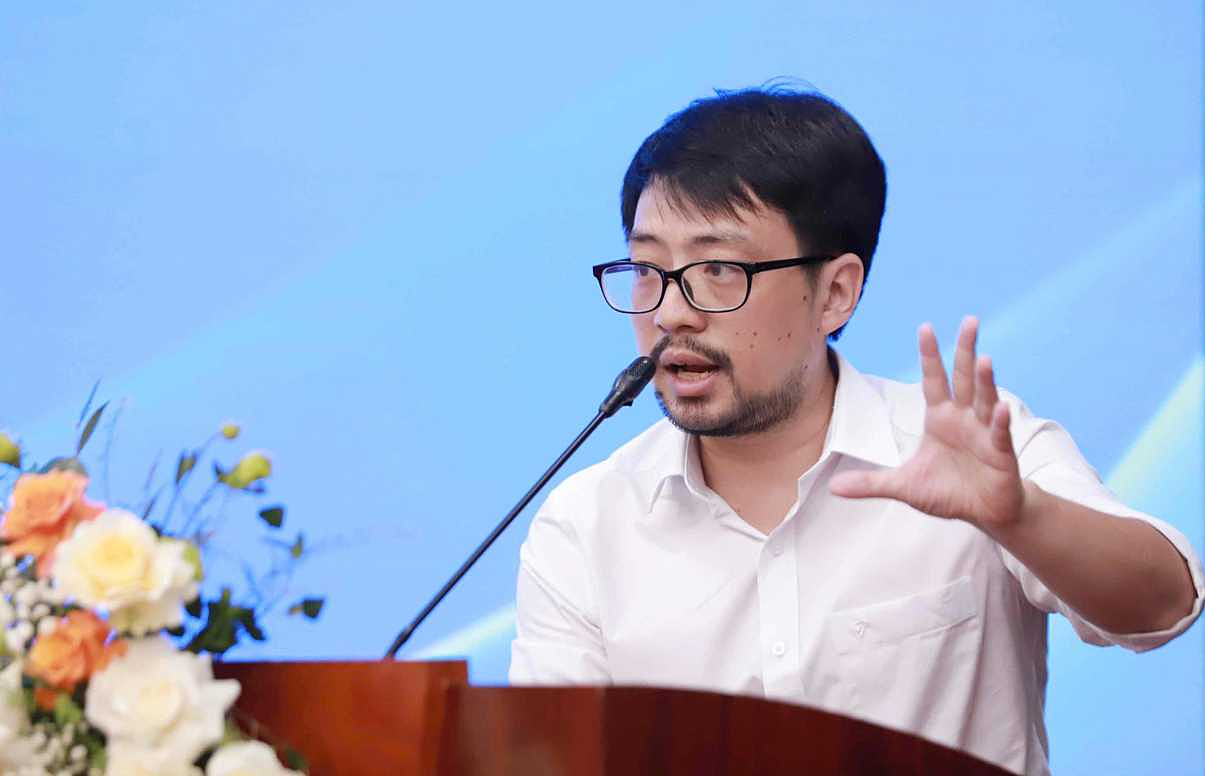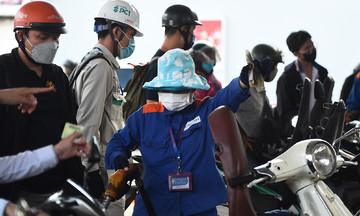At the "Human Resource Development - A Prerequisite for the Digital Economy and Green Growth" seminar on 11/8, Nguyen Phong Anh, an AI expert from a training project by Meta and Hanoi National University, noted a trend of businesses threatening to replace staff with AI or demanding that staff find AI tools to replace their own work.
This tactic, he argued, affects employee morale and can decrease productivity.
"We should use AI to activate the mind, not replace it," Anh advised. In an era of rapid technological advancement, human intellect should be focused on higher-level tasks like creativity, exploration, and social empathy.
 |
Nguyen Phong Anh, AI expert from a training project by Meta and Hanoi National University, at the event on 11/8. Photo: Lao Dong |
Nguyen Phong Anh, AI expert from a training project by Meta and Hanoi National University, at the event on 11/8. Photo: Lao Dong
AI is presenting significant challenges to the labor market. According to Layoffs.fyi, a website tracking tech layoffs, the number of tech employees laid off in 2023 surpassed the combined total of 2020 and 2021. Amazon led with over 27,000 layoffs, followed by Meta (approximately 21,000), Google (over 12,000), and Microsoft (over 11,000).
In Vietnam, a 2023 report by the Vietnam Chamber of Commerce and Industry (VCCI) and the Directorate of Vocational Training found that 70% of jobs in labor-intensive industries like textiles, footwear, and electronics assembly are at risk of being replaced by robots and AI within the next 10 years.
Nguyen Khanh Long, Deputy Director of the Department of Employment (Ministry of Home Affairs), warned of a significant risk for unskilled, middle-aged, and female workers in industrial zones if they don't receive timely retraining. A substantial gap exists between training programs and practical needs, with 38 million out of nearly 52 million workers lacking basic vocational training.
Conversely, many experts see the digital and green transitions as opportunities for Vietnamese businesses to optimize their intellectual resources, especially given Vietnam's long-standing imbalance of "too many teachers, not enough skilled workers."
The AI training expert from Meta recommends transforming organizations into "high-speed learning machines," enabling all members to learn from successes and failures while working with AI.
For example, engineers applying AI solutions should understand what they learn from AI suggestions, supported by evidence and data, and the solution's effectiveness. They must grasp the nature of their work, how to interact with AI, and the benefits and risks involved.
One challenge in applying AI is over-reliance and the potential for "eroding human thinking." While acknowledging this phenomenon, the expert stated it isn't widespread. Anh recommends fostering a culture of critical thinking, scrutiny, and challenging both human and machine-generated ideas.
A business's biggest competitor isn't other businesses in the same industry, but obsolescence. Anh warns that with the current pace of technological development, most of the workforce will need retraining within the next two years. Otherwise, the workforce will be stratified into three tiers: a top tier proficient in AI with extremely high salaries, a bottom tier of unskilled manual laborers, and a middle tier whose jobs are replaced by AI.
At the macro level, the Deputy Director of the Department of Employment recommends a national strategy for human resource development linked to digital transformation and green growth. A national database on digital and green human resources is also needed to collect, analyze data, and forecast occupational shifts, new job trends, and potential job losses due to technology or environmental requirements.
Thuy Truong












